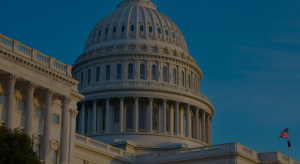Phil was elected in 2022 to represent Georgia House District 59, which includes parts of Atlanta and East Point. He also serves as Executive Director of Next Generation Men & Women (Next Gen), a nonprofit that connects high school students with local businesses and colleges to provide real-world career exposure and mentorship.
Previously, Phil was Director of Performance Management at WorkSource Atlanta and served as a U.S. Peace Corps Volunteer in the Philippines.
A graduate of Duke University, Phil holds a Master in Public Policy from the Harvard Kennedy School. He is a former president of the Summerhill neighborhood and has been recognized as a Georgia Trend 40 Under 40 and an Atlanta Business Chronicle 40 Under Forty honoree.
Phil lives in Summerhill with his wife, Sabrina Gómez, and their two sons, August and Antony.
Citizen advocates and community-based organizations are often told to get involved with local policy, make their opinions know, and build relationships with lawmakers. But what do lawmakers think about your opinions and priorities? In a time where it is easy to feel powerless or unheard, the answers may surprise you!
What do you want constituents to know about the impact of their input, especially those who think their opinions don’t matter?
We just can’t do our jobs effectively without hearing from those we serve, and that’s because policy has to be an extension of everyday life. We as lawmakers have to be able to have our finger on the pulse of our communities in order to make the best policy decisions. For the folks who think their opinions don’t matter, I will say that we tend to hear from the same small contingent of folks over and over and the more that we can hear from a broad range of people, the closer we can get to the truth.
Is there a time when a constituent or community-based organization changed your perspective on an issue? If so, what did they say or do to change your perspective?
I try to always approach policy being firm in my values, but with an open mind. And that’s because policy relies so much on nuance. And being open minded allows for different perspectives to shape policy and to be moving always toward the truth of the matter, whatever that may be. I did have a situation as a neighborhood president where residents were upset about a building’s use in the community, and it was something I didn’t really see a problem with. But once I listened to their perspective I saw that it was really a process issue, and the community was upset because they didn’t feel that there was adequate outreach or a chance to voice their opinions before something directly affecting them took place. So, it’s a reminder to me that we always have to be sure to hear the perspectives of the people most affected by an issue, and make sure that we take steps to make them truly feel heard.
Have your priorities ever been shaped or influenced by citizen engagement?
Priorities are definitely shaped by feedback from constituents, and priorities are certainly important since you have to be strategic and remember that you’re working within a limited time in a legislative session.
What is something you think people get wrong or don’t understand about how government operates?
Surprisingly, people think that [state lawmakers] don’t live here. Some think we live in DC. Another misconception is that being a representative is a full-time job. In actuality, I do live in the community, and my full time job is Executive Director of Next Generation Men & Women. I’m a dad and a husband.
This is the real benefit of engaging with local and state electeds- you may see them at church or the grocery store, or a youth sports event. That type of accessibility is great for citizens and also it’s great for me, because it provides another opportunity to get to know you and what matters to you. And really, that’s the best part of my job.
People often think that we have more administrative support that we do, or they automatically assume that they won’t get a reply after contacting me. However, I will respond and it will actually be me, not an assistant. So, it helps to know that in order to be patient or to know that sometimes elected officials can’t respond, but that doesn’t mean that your engagement with the issues isn’t important.
Anything else you would like people to know about civic engagement, especially at times like this when legislatures are out of session, feel free to add it!
Now is definitely a great time to get engaged, especially with state lawmakers because we are at home in our districts. One thing to note is that this question does put the onus for engagement on the individual and really it’s a shared responsibility. Electeds need to get on the ground to empower and encourage engagement.
How can community-based organizations play a role in facilitating engagement?
They have a role to play here! They can help bridge that gap between individuals who have valuable insight and don’t feel empowered to share it directly for whatever reason. They can really improve the engagement process, and help spot trends and patterns with emerging issues, which is important because we really need input from the widest group of constituents possible.
Anything else?
Use your voice. Your voice is the thing that makes you equal to the person next to you.





